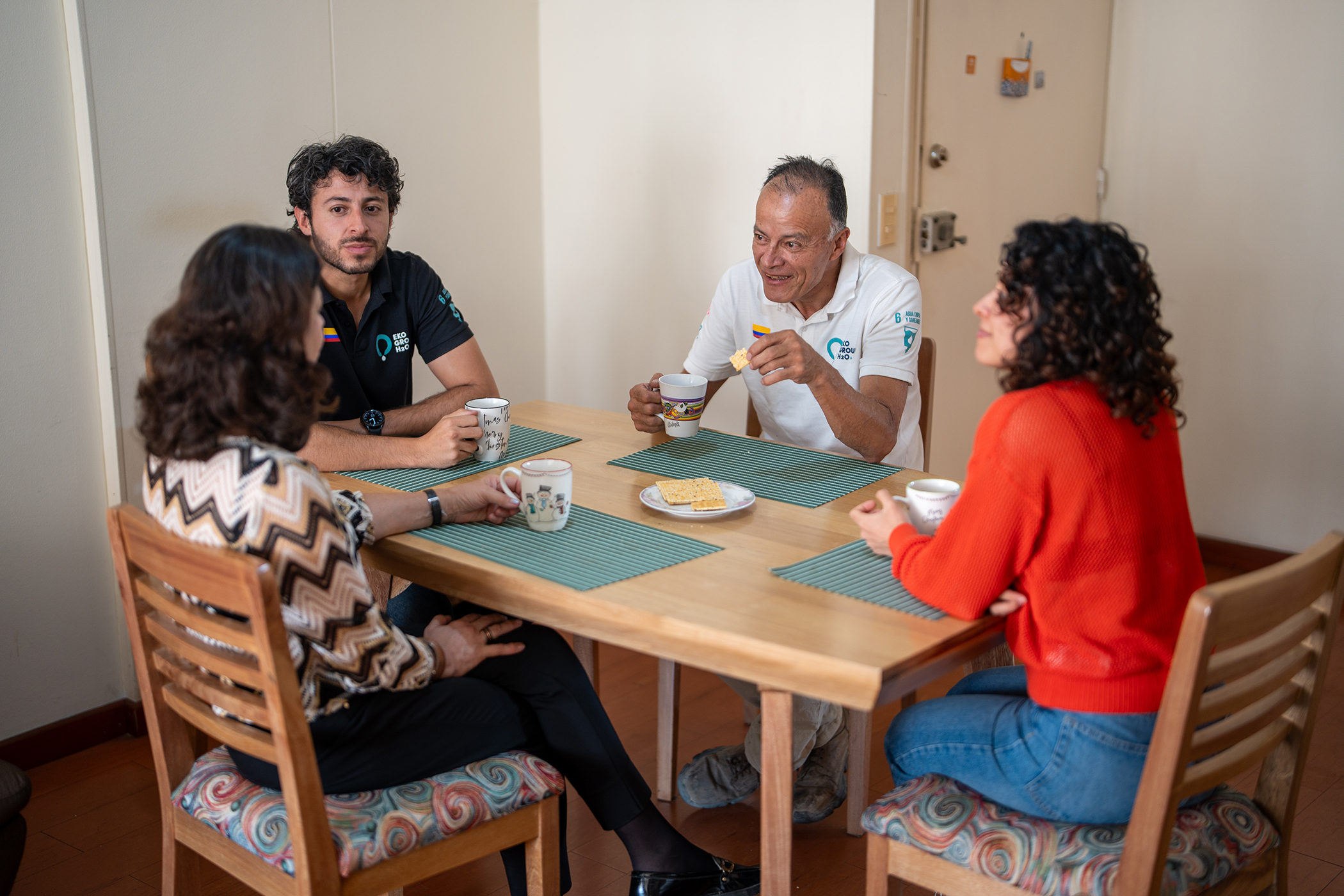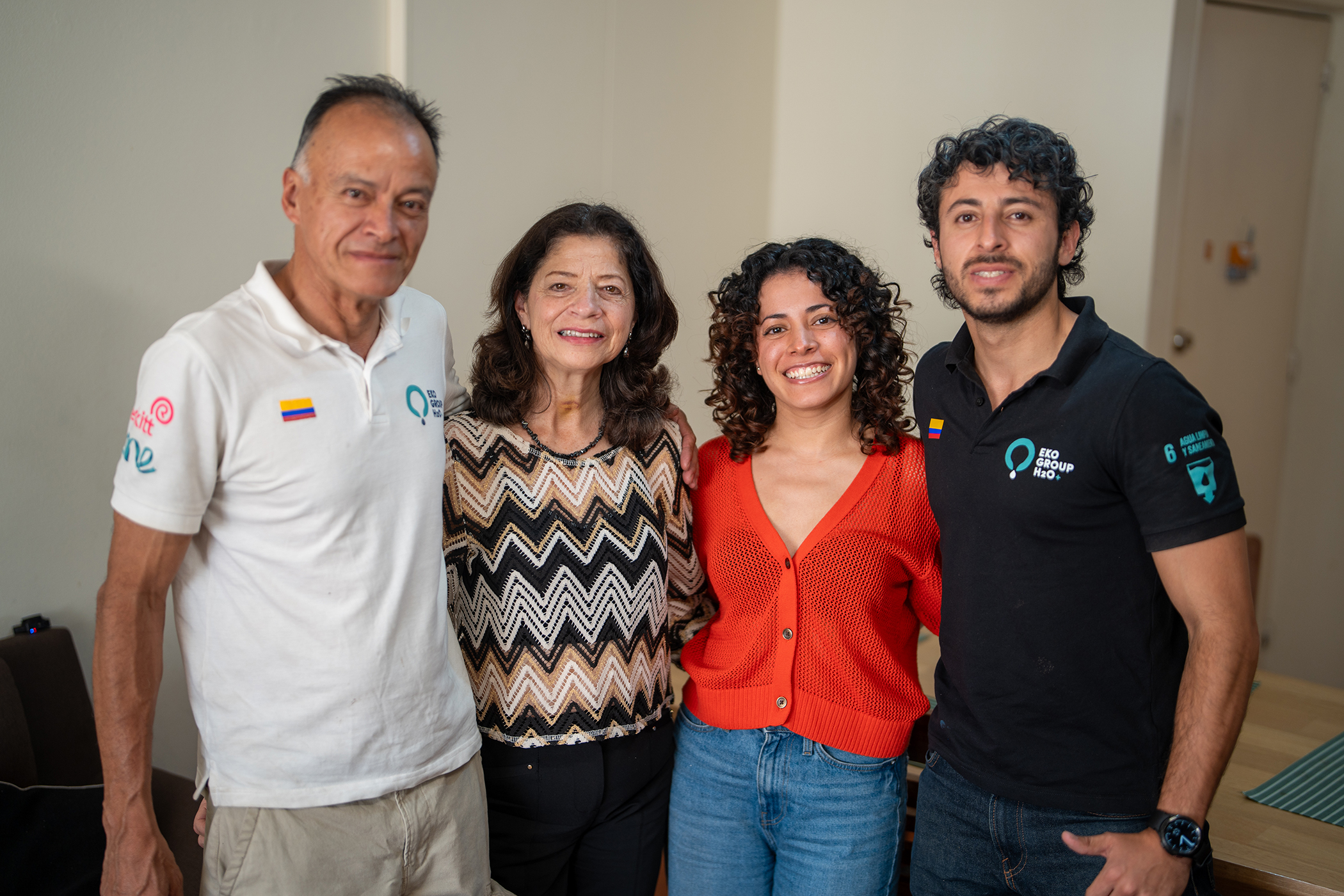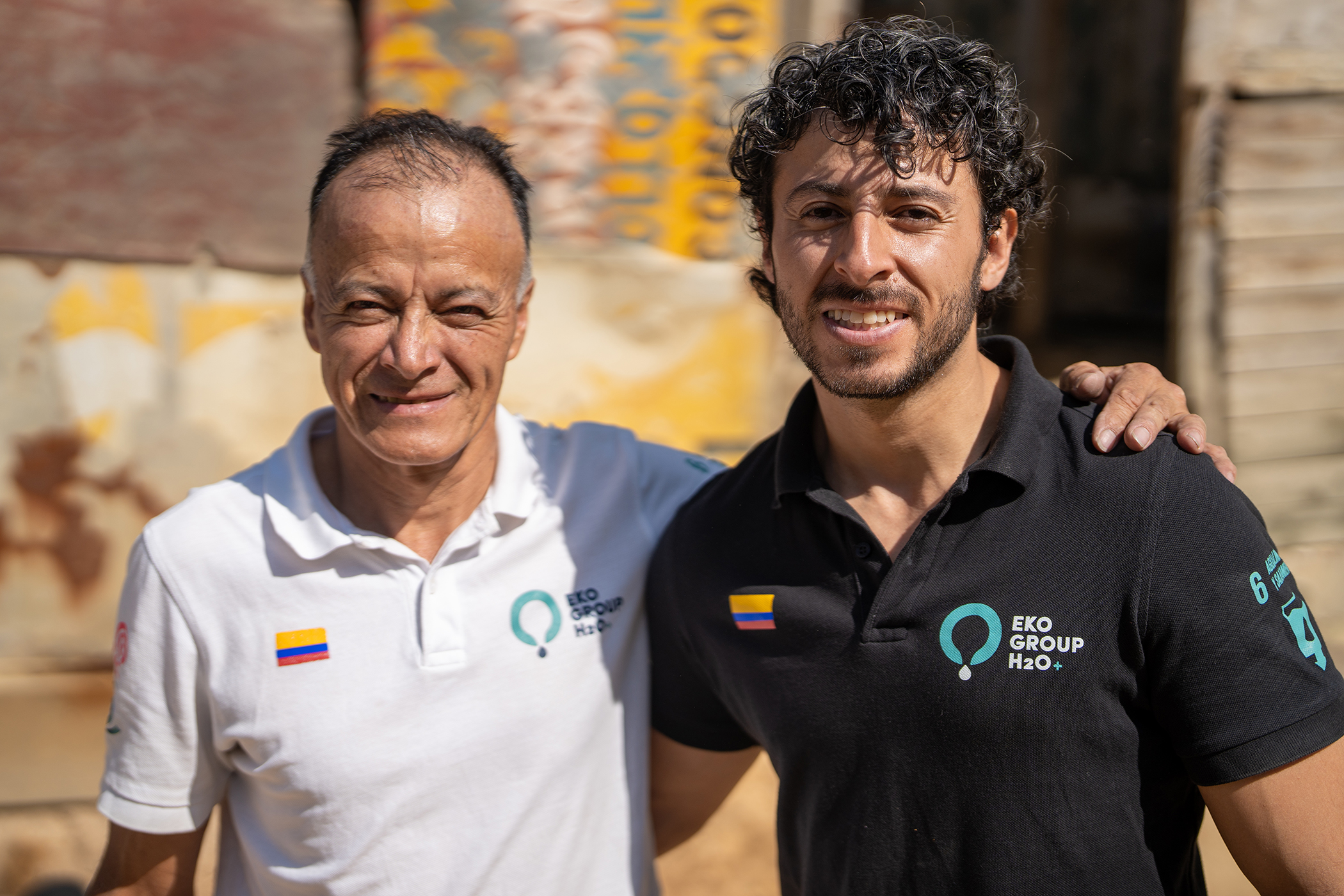Water is one of the most vital resources the world has, and as the climate crisis slowly sips the earth dry of the finite resource, out-of-the-box innovations are the key to making sure those in need continue to have access to it.
Enter this year’s Cisco Youth Leadership Award Winner: Ricardo Alba Torres.
What started as a high school project for the now 29-year-old environmental engineer, has turned into a lifeline for 85,000 citizens across Latin America. Torres, who hails from Bogotá, Colombia, is the co-founder and CEO of Eko Group H2O+, a social enterprise that uses inventive technologies and recycled materials to tackle water scarcity.
The enterprise’s key product, the Ekomuro water tank, was created as a direct response to the growing water crisis across the region. Better yet? It was conceptualized in a classroom 15 years ago, with the help of one of Torres’ lifelong teachers.
“We started with the project when I was in high school, and it was a science school project,” Torres told Global Citizen. “The leader of the project was my father — and my mom is a teacher too. So I was involved in these kinds of environmental projects when I was a child and for that reason, I started studying environmental engineering at university with the goal to increase the impact of our project.”
Torres’ father, Ricardo Alba Aldana now works directly with his son and stands as the second co-founder of Eko Group H20+. It’s a family affair as his mother and sister are part of the business too — with his mother, Nancy Torres Bello, bringing her natural sciences background into the work, and his sister, Jessica Alba Torres, running the front-facing part of the business including graphic design and marketing.
The invention of the Ekomuro water tank could not come any sooner, as the Latin America region is experiencing some of the worst that the global water crisis has to give. The World Bank estimates that roughly 150 million people, or a quarter of Latin America and the Caribbean’s population, live in high water-scarce areas — and it’s predicted that those numbers are set to increase with the growing negative impact of the climate catastrophe.
The way Torres’ Ekomuro water tank tackles this, is two-fold: first by producing a tank that provides access to water for those who most need it, and then by recycling single-use plastic products (that we know are major culprits when it comes to climate change) in the creation of this water tank.
“We created a system with trash — I say trash because we use PET bottles and we use pipes that when they finish their life-cycle, are trash,” Torres said. “So we use the principle of the circular economy in order to renew this material and they become something else from this trash.”
So how exactly does the Ekomuro tank work?
“We interconnect 10 of these pipes or bottles, each bottle or pipe has a capacity of 25 liters. So if you interconnect each one in a vertical way, you have a vertical tank of 250 liters of capacity in one Ekomuro model,” Torres explained.
He added that the compact design of the product is a purposeful spacesaver, explaining: “We call it Ekomuro because in English it's ‘Eco Wall’. ‘Muro’ is wall in English, so you can harvest water or collect rainwater in a wall, and the capacity of each wall is 250 liters. What is the main difference between the Ekomuro tank and another common tank that you can buy in a retail store? It’s that you can install it on a wall and you don't need to have the same space that you need to have with a big tank.”

Already the social enterprise lists that the invention works on three of the UN’s Global Goals: Goal 6 which calls for access to clean water and sanitation for all people, Goal 11 for sustainable cities, and Goal 13 which calls for urgent climate action.
However, we’d argue that there are more goals that the water tank impacts. As the invention prioritizes circular economy production methods, it directly touches on Goal 12 for sustainable production and consumption patterns. And finally, the added benefit of a purifying water filter that allows consumers to drink water directly from the tank (a rarity in the rainwater tank industry), means that the invention also ensures the good health and well-being of consumers in avoiding waterborne diseases, which impacts Goal 3.
On the latter, Torres explained: “Our Ekomuro works like a tank that you buy in the hardware store, in that you harvest , but we install some filters that work by inverse osmosis and so it provides drinkable water directly from this rainwater that we actually harvested in the Ekomuro tank. It brings safe water to communities around the world.”
The inclusion of the filter came from understanding the communities’ needs, as a lot of the Eko Group H20+ beneficiaries, a large number of them being schools, are in need of instant access to safe drinking water.
As the recipient of the 2024 Cisco Youth Leadership Award, Torres and Eko Group H20+ will receive US$250,000 to further the impact of the social enterprise’s work. An annual prize, the award was established by Cisco and Global Citizen to celebrate and uplift young people who are positively impacting the world, and to identify young leaders who are using their skills and resources to work towards achieving the Global Goals and ending extreme poverty.

Torres told Global Citizen that he and the team already have big plans for continuing the work they’ve started, including expanding the social enterprise to neighboring countries such as Argentina, Paraguay, Brazil, and Panama, through the strategic engagement of stakeholders and partnerships — and thanks to the prize, they can get going.
“We have very big goals for the next few years,” Torres told Global Citizen. “We want to impact nearly 3 million people from Latin America who don't have access to safe water. That's a goal that we have for 2030.”
The environmental engineer also explained that the award will be helpful in introducing a sustainable monitoring process through the implementation of IOT (or the Internet of Things) on the Ekomuro tanks. This would help assess essential information and feedback from the tanks in order to continue to improve the user experience of the product, and to ensure that it continues to do its job effectively.
What’s more, Torres told Global Citizen that the hope is to also introduce the Ekomuro into retail stores in order to make it available to the masses who need access to affordable and reliable water sources.
As if those plans weren’t big enough, the enterprise has also recently introduced an innovation called the Ekomuro Urban Concept. Similar to the design of an electrical substation, this new product doesn’t need previous infrastructure, like the wall the traditional Ekomuro product uses, for the stability it requires to collect and distribute water. Making it easily available to several open spaces.
“We can install it in schools, in parks, in malls, in concerts, that’s our idea, we want to bring safe drinking water to where people are,” Torres said.
Before hitting 30, Torres has already started to make an impressive imprint in the business of changing and improving the lives of the people in and around his community. To those who are hoping to do the same, he has this to say:
“I think that it’s super important to believe in yourself. I learned this important part from my father because all his life he was an entrepreneur with new ideas and inventions. I think that he believed, and I learned that from my father — believe in yourself and be confident.”


